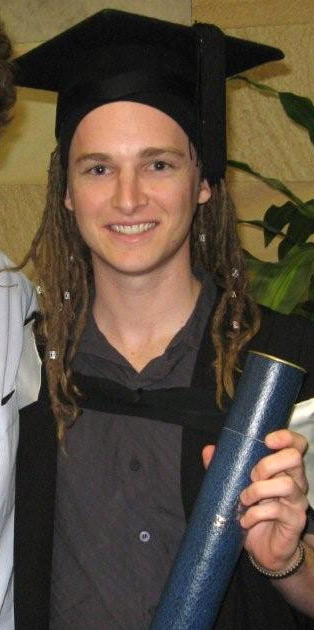 September 9-11, I attended Big Sound, my first music conference. I moderated a discussion panel called ‘Blogging, Twittering and Online Publishing: Tastemaking or Time-Wasting?‘, managed a showcase band, Hunz, and reported for The Music Network.
September 9-11, I attended Big Sound, my first music conference. I moderated a discussion panel called ‘Blogging, Twittering and Online Publishing: Tastemaking or Time-Wasting?‘, managed a showcase band, Hunz, and reported for The Music Network.
What did Big Sound 2009 mean to me?
It meant appearing in my first public speaking role since the occasional presentation throughout my tertiary education. On the day, it was my preparation and familiarity with the subject matter that saw 90 minutes of guided discussion pass without concern on my part. My notes from the panel are here.
It meant representing an artist whose music I love, and actively inviting others to experience his art and understand his vision. While I’m still coming to terms with the latter, but it was perpetually thrilling to see Hunz describe himself to the unfamiliar, both in meetings and on stage. Their showcase performance was strong, and well-received by the crowd present, based on the feedback we received afterwards. [Photo from the show below]
Throughout Big Sound, my personal goal was simply to introduce his music to new ears. That may be naive, but we agreed beforehand that there was little point in building up expectations. Whatever happens, happens, but there’s no doubt that their showcase was an overwhelmingly positive experience.
It also meant becoming more comfortable in crowded social situations. This was networking in the truest form I’ve witnessed since a digital industry event called Interactive Minds, late last year. It was very much a case of rapid-fire socialising, smiling, shaking hands, and exchanging details. Yeah, some of it was superficial. But while the personal connections I made mightn’t all yield results in the short term, in sum, the networking was the most enjoyable element of the event.
From my perspective, it was cool to have people introduce themselves to me after knowing who I am, which is the opposite to all of my music-related encounters in the past. The coolest example of this was Wally de Backer introducing himself the day after my panel. It took me like 5 seconds to realise that he was Gotye, and another 30 or so for Hans to make the connection to his identity – that is, a source of massive musical inspiration. But I wasn’t like ‘OMG WHAT TO DO?’, but more like ‘oh sweet, he’s keen for a chat’. Wally was there to showcase his other band, The Basics, who are self-managed.
One of the biggest shifts in my mindset of late is that I’m beginning to accept that ‘famous’ people are just people. It’s something inherently known, but it’s still difficult to accept. Everyone knows the feeling of seeing a public figure in the flesh and being too scared to approach; more and more, I’m abandoning that mindset, and just going after it. Cases in point: approaching both The Dead Sea (whose showcase was one of my highlights) and Yves Klein Blue‘s Michael Tomlinson (who I’d interviewed for jmag the week before) at the Sounds Like Brisbane launch.
In the Big Sound context, it’s more a case of recognising that these meeting opportunities are extremely limited, and discarding hesitation in the face of time constraints. Again, this is one of the aspects of the event I most enjoyed: the simple act of bringing together so many influential minds that have the ability to make shit happen is the main drawcard.
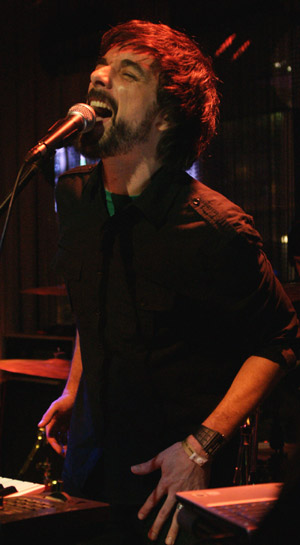 I mean, the conference is nothing without its delegates. No shit, right? I’d read this beforehand and understood it at a basic level, but it really didn’t click for me until I was there among the masses that I realised – hey, any industry is built on the people who work within it. An event like Big Sound simply enables connections between people to happen at a more rapid rate.
I mean, the conference is nothing without its delegates. No shit, right? I’d read this beforehand and understood it at a basic level, but it really didn’t click for me until I was there among the masses that I realised – hey, any industry is built on the people who work within it. An event like Big Sound simply enables connections between people to happen at a more rapid rate.
A few people I spoke to questioned why the openness and accessibility on display across the three days couldn’t exist for the other 362. As far as I can comprehend, it’s because shit wouldn’t get done if artists, labels, managers, and promoters kept the gates to their respective castles open at all times. Those few days of meeting and conversing are useful because of their scarcity. In an industry built upon the creation and commodification of a social object – music – it was enlightening and inspiring to meet so many dedicated to sharing with one another.
I’ll cite Big Sound as the event that affixed a silencer to my pistol of industry skepticism. In an interview with Warner Music CEO and ARIA chairman Ed St John a fortnight ago, I related to him that my increasingly frequent conversations with the people who work within the industry has shifted my view of large companies – like major record labels – from faceless organisations, to groups of decision-making individuals. [Sidenote: read that interview on One Movement Word here]
That might read like a basic statement to make, and a basic realisation to have. But after spending the best part of a decade – my formative adolescence – reading and participating in online forums where the loudest opinion is often taken as reality, I’m only just starting to unlearn. Nick and I call it ‘blogger’s mentality’, wherein an internal bias colours one’s worldview to the point where it interferes with learning and understanding.
I’m not suggesting that I’m attempting to remove subjectivity from my observations, because you know as well as I that it’s fucking impossible. Instead, what I’m trying to do is approach every situation, every interaction with an open mind, while placing little value on preconceptions. It’s less naivety, than measured optimism. Lately, I’m of the mind that people – individuals – are inherently good, so I’ll treat them with that respect until proven otherwise.
To return this realisation to the context of Big Sound, and the wider music industry: I have no time for stories of failed business deals and broken relationships. An individual’s history is less meaningful than how they present themselves in the moment.
What I’m now aiming to do is assess people on their merits when we meet, rather than relying on markers of their past to colour my perceptions. To me, where you’ve been is less important than where you’re going. In a songwriting context, to wit: you’re only as good as your last song.
[Thanks to Justin Edwards for the photographs]
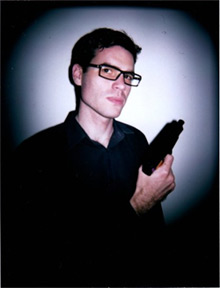 My latest Rolling Stone story was on Genero.TV, a website that offers filmmakers the chance to come up with a video concept that may become a band’s official music video.
My latest Rolling Stone story was on Genero.TV, a website that offers filmmakers the chance to come up with a video concept that may become a band’s official music video.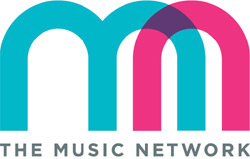 In June 2009, The Music Network published my first commissioned article. It was the first in a five-part series called ‘For The Record’, a retrospective feature on the album format and whether it’s still relevant. Start with part one
In June 2009, The Music Network published my first commissioned article. It was the first in a five-part series called ‘For The Record’, a retrospective feature on the album format and whether it’s still relevant. Start with part one  September 9-11, I attended
September 9-11, I attended  I mean, the conference is nothing without its delegates. No shit, right? I’d read this beforehand and understood it at a basic level, but it really didn’t click for me until I was there among the masses that I realised – hey, any industry is built on the people who work within it. An event like Big Sound simply enables connections between people to happen at a more rapid rate.
I mean, the conference is nothing without its delegates. No shit, right? I’d read this beforehand and understood it at a basic level, but it really didn’t click for me until I was there among the masses that I realised – hey, any industry is built on the people who work within it. An event like Big Sound simply enables connections between people to happen at a more rapid rate.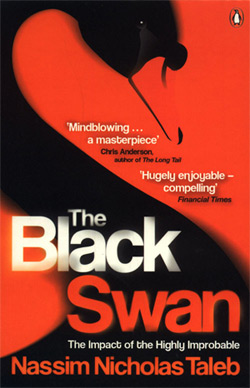 For the last couple months, I’ve been reading a book by
For the last couple months, I’ve been reading a book by 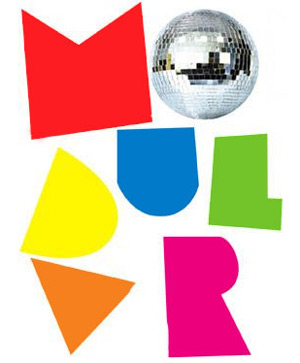 I’ve been online for like 10 years, and I’m only just beginning to consciously pay attention to this stuff. Cumulative advantage dictates that the more time you spend online building meaningful relationships and contributing to the internet, the easier it’ll be to get what you want.
I’ve been online for like 10 years, and I’m only just beginning to consciously pay attention to this stuff. Cumulative advantage dictates that the more time you spend online building meaningful relationships and contributing to the internet, the easier it’ll be to get what you want.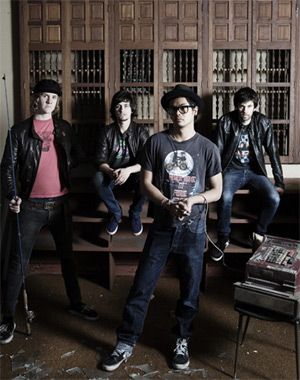 For both music fan and critic, the most exciting live music experience is the great unknown. Bearing witness to an act you’d not previously heard, but becoming completely immersed in their art. Becoming an instant convert to their cause. Becoming willing to hit the merch desk immediately after they’re done playing in order to buy something – anything! – that the band have created; to have, to hold, and to listen. Those are the kinds of performances that music critics such as myself love to write about; they’re also the kinds of performances that A&R folk spend their careers trying to witness, in order to sign and release the act’s music on behalf of their label.
For both music fan and critic, the most exciting live music experience is the great unknown. Bearing witness to an act you’d not previously heard, but becoming completely immersed in their art. Becoming an instant convert to their cause. Becoming willing to hit the merch desk immediately after they’re done playing in order to buy something – anything! – that the band have created; to have, to hold, and to listen. Those are the kinds of performances that music critics such as myself love to write about; they’re also the kinds of performances that A&R folk spend their careers trying to witness, in order to sign and release the act’s music on behalf of their label. The second band were an electronic pop trio called
The second band were an electronic pop trio called 